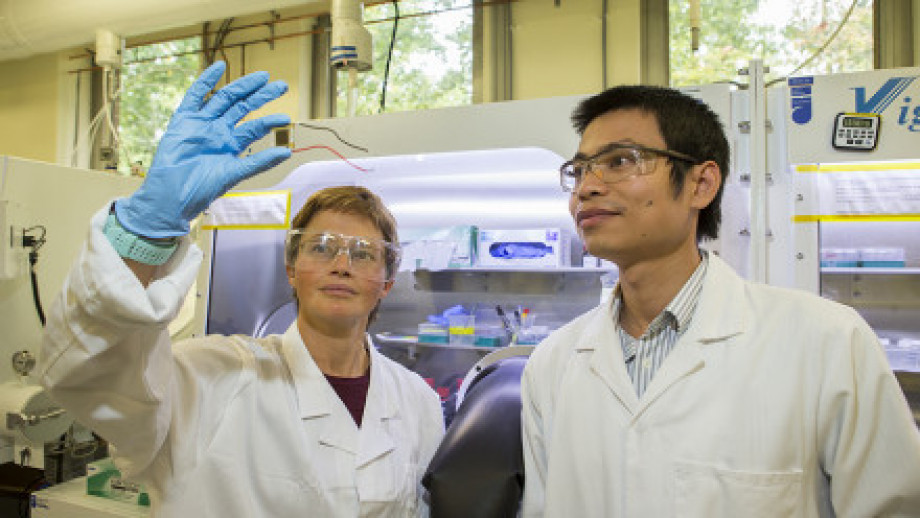In 2021 Australia set its “Solar 30 30 30” target aiming to reach 30% module efficiency and 30 cents per installed watt (USD 0.21/W) at utility scale by 2030. A team from the Australian National University (ANU) in Canberra announced they had reached the first 30, achieving a 30.3% efficiency.
The perovskite and silicon tandem solar cell have ultra-high efficiency, while also enhancing the operational stability of the solar cells, said the team. The work builds on a previous record set by ANU researchers in 2020, and was funded by the Australian Renewable Energy Agency (ARENA), who committed $40 million to help see the “Solar 30 30 30” stretch goal realised.
Research lead The Duong said the team brought into play the strengths of both widely-used silicon cells and perovskite cells, which are made from materials with a specific crystal structure revered for efficiency but notoriously unstable.
“With these tandem solar cells, the perovskite top cell can efficiently absorb the blue light and transmit the red light to the silicon bottom cell, producing significantly more energy from sunlight than each individual device,” Duong said.
Alone, the highest recorded efficiency for silicon cells is currently 26.81% in lab circumstances, but for commercially available modules it sits closer to 20%.
“Surpassing the 30% mark is significant,” Duong said. “That’s currently considered the efficiency threshold for the commercialisation of tandem technology like that used in our study. The current predictions are that tandem solar technology will be in mass production by 2026. However, more work is still needed to upscale and ensure the technology can be stable in the field over 25 to 30 years.”
The ANU team is now working to further improve the efficiency and stability of the solar cells. Their findings have been published in Advanced Energy Materials.
This content is protected by copyright and may not be reused. If you want to cooperate with us and would like to reuse some of our content, please contact: editors@pv-magazine.com.









By submitting this form you agree to pv magazine using your data for the purposes of publishing your comment.
Your personal data will only be disclosed or otherwise transmitted to third parties for the purposes of spam filtering or if this is necessary for technical maintenance of the website. Any other transfer to third parties will not take place unless this is justified on the basis of applicable data protection regulations or if pv magazine is legally obliged to do so.
You may revoke this consent at any time with effect for the future, in which case your personal data will be deleted immediately. Otherwise, your data will be deleted if pv magazine has processed your request or the purpose of data storage is fulfilled.
Further information on data privacy can be found in our Data Protection Policy.